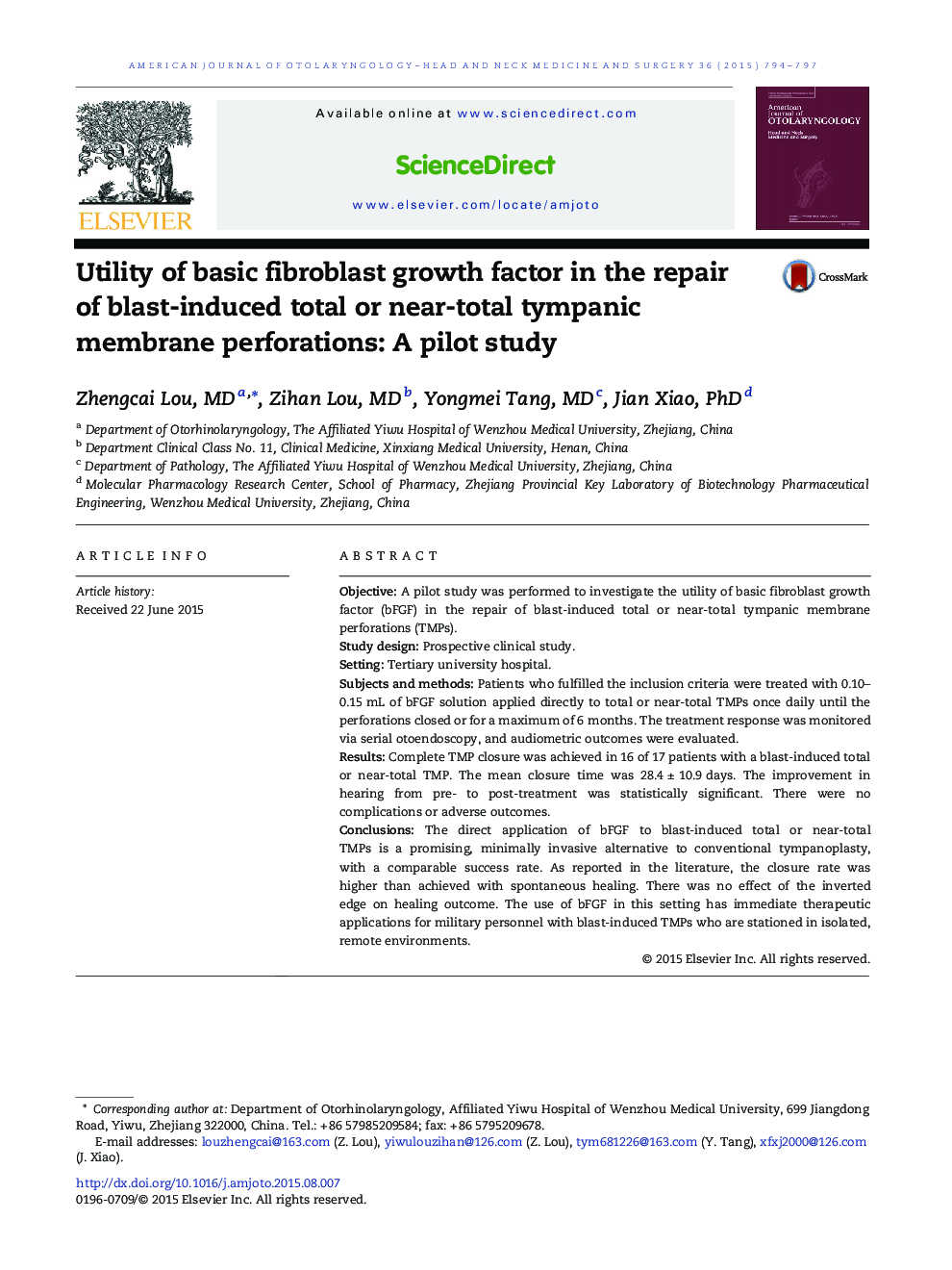| Article ID | Journal | Published Year | Pages | File Type |
|---|---|---|---|---|
| 4103279 | American Journal of Otolaryngology | 2015 | 4 Pages |
ObjectiveA pilot study was performed to investigate the utility of basic fibroblast growth factor (bFGF) in the repair of blast-induced total or near-total tympanic membrane perforations (TMPs).Study designProspective clinical study.SettingTertiary university hospital.Subjects and methodsPatients who fulfilled the inclusion criteria were treated with 0.10–0.15 mL of bFGF solution applied directly to total or near-total TMPs once daily until the perforations closed or for a maximum of 6 months. The treatment response was monitored via serial otoendoscopy, and audiometric outcomes were evaluated.ResultsComplete TMP closure was achieved in 16 of 17 patients with a blast-induced total or near-total TMP. The mean closure time was 28.4 ± 10.9 days. The improvement in hearing from pre- to post-treatment was statistically significant. There were no complications or adverse outcomes.ConclusionsThe direct application of bFGF to blast-induced total or near-total TMPs is a promising, minimally invasive alternative to conventional tympanoplasty, with a comparable success rate. As reported in the literature, the closure rate was higher than achieved with spontaneous healing. There was no effect of the inverted edge on healing outcome. The use of bFGF in this setting has immediate therapeutic applications for military personnel with blast-induced TMPs who are stationed in isolated, remote environments.
